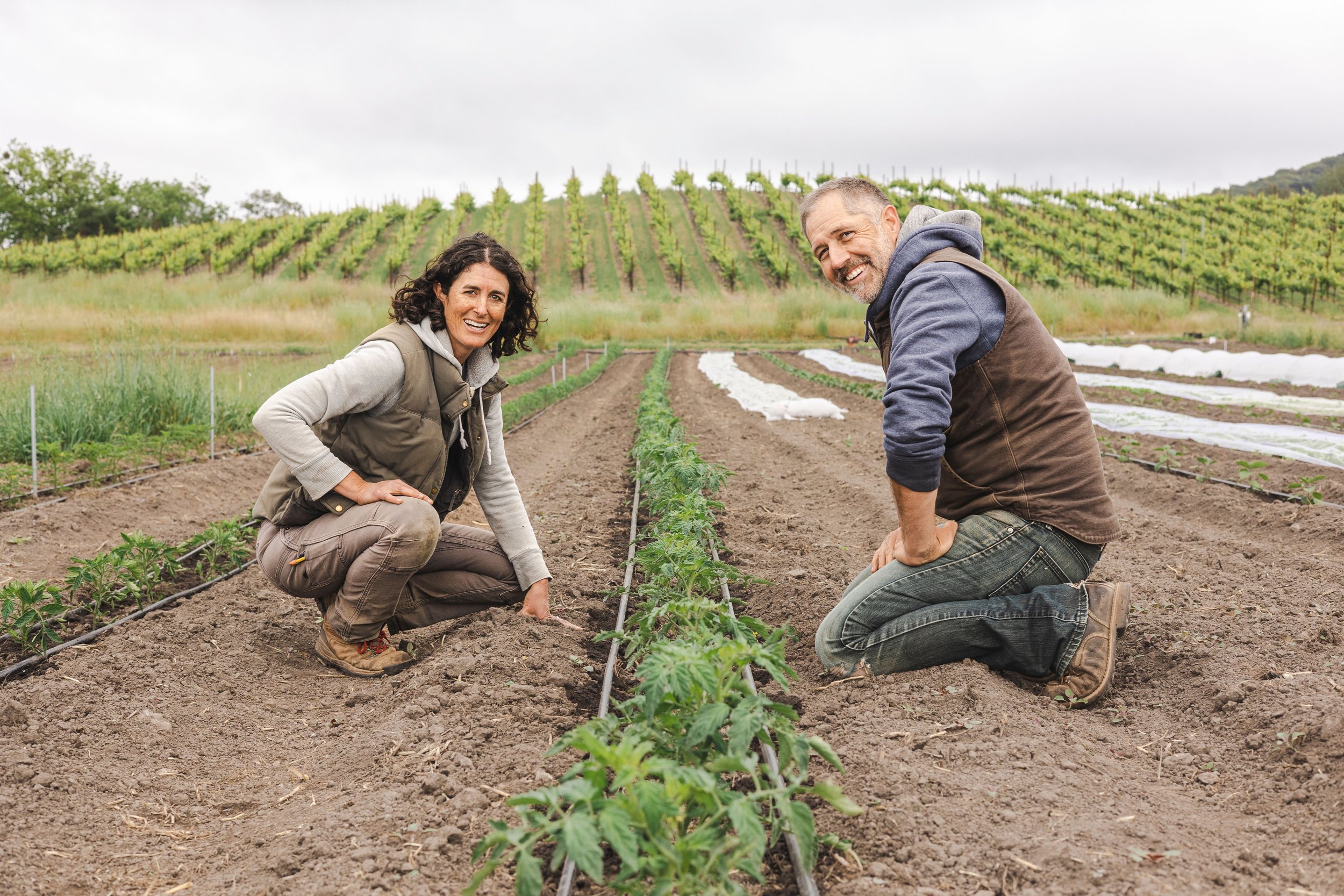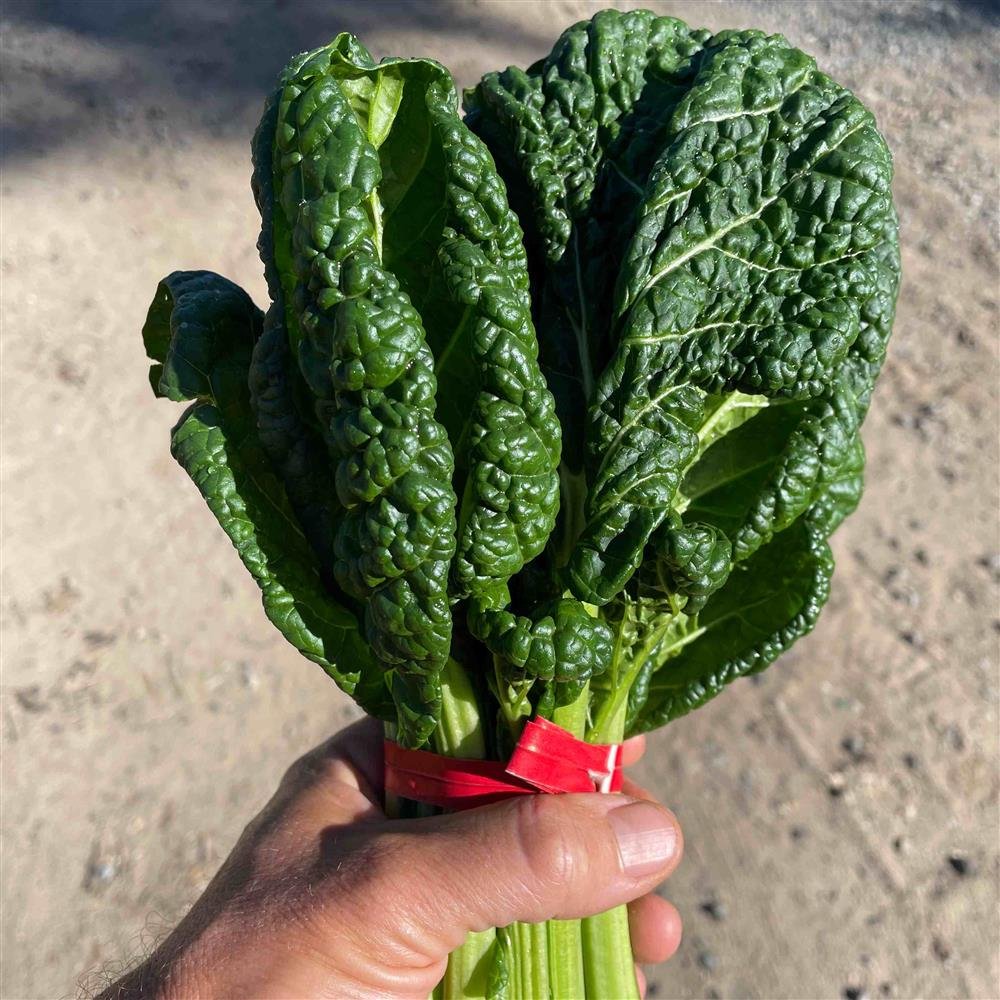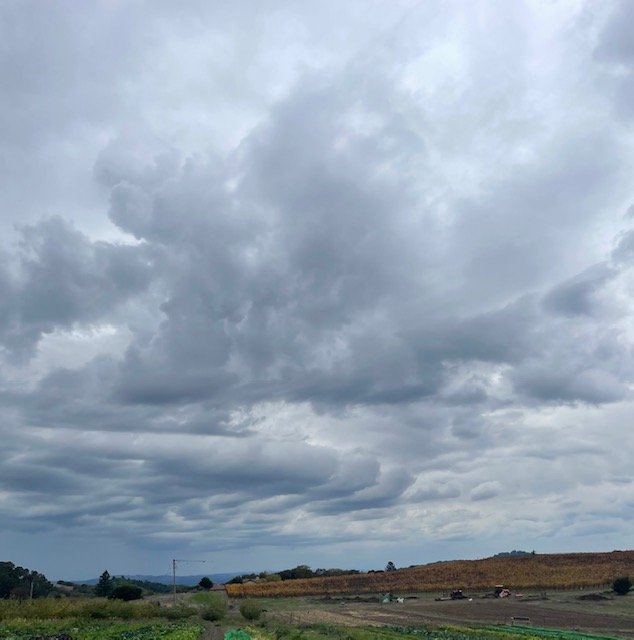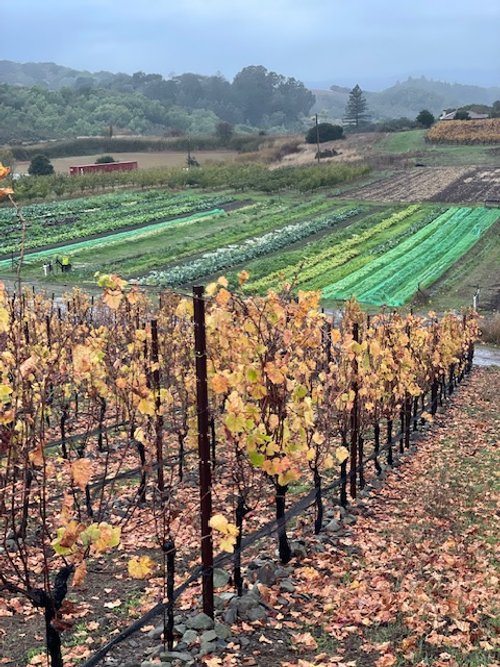Kibo Farm, Santa Rosa- Est. 2016
Written by Lauren Papalia
Lauren is part of FEED’s marketing team, a writer and part-time farmer
It would be hard to deny that Kibo Farm, whose name is inspired by the Japanese word for hope or wish, is picturesque. At modest altitude on Sonoma Mountain, a mezzanine of clouds hangs particularly low on the day of my visit. Gangly snowy egrets take flight from an adjacent pond and stand out in stark contrast against a darkened sky. The cultivated fields themselves lay surrounded by an orchard and grapevines on the hillsides. It is here that Jenny and Vince Trotter and their farm crew grow mixed vegetables and fruit trees on four acres, a little over half of which is now resting, tucked in with cover crop for the winter. There are pome, stone and citrus varieties, including some seriously robust dwarf meyer lemon trees. Kibo also specializes in several Asian vegetables, including chijimisai, a mild, delicious, hearty cross of Japanese mustards. Additionally, they grow storage crops like dry beans, milling corn and popcorn.
And while Kibo Farm stands out on its own with the gorgeous produce and other products made from what they grow, the Trotters rely and thrive on collaborative relationships they have forged. The land is leased from winemaker Belden Barns, with whom they share equipment and a line of products, including cider. The Farm works closely with local chefs to synchronize menus with crop planning. Part of FEED Cooperative’s inaugural cohort of members, the Trotters understand the importance of collaboration among small farms and businesses and embrace the spirit of working together to care for land and community. Seeking shelter in the barn from a pelting rain, we sat down and talked more about farming, the issues of small agriculture today and how, for some, feeding people is a love language.
Kibo Farm’s Vince and Jenny Trotter.
LP (Lauren Papalia): Kibo Farm’s crops are nestled in a bowl, surrounded on three sides by Belden Barns grapevines. Can you describe some of the nuances of your topography and the challenges and advantages that come with it?
KF (Kibo Farm): Our fields sit in a low spot on the property, which acts as a catchment basin for the Winter rains that eventually flow into our irrigation pond. This has brought us rich topsoil from the surrounding hills, but it also leaves our fields soggy well into the Spring, making it hard to get the kind of early jump on things that would allow us to grow (and sell!) earlier in the year. One day, we'd like to find a way to redirect some of the water so that it bypasses our fields, but still makes its way into the pond, allowing us to keep our crew busy and maintain cashflow for more months of the year.
The property itself sits nearly 1,000 feet up the Northwestern flank of Sonoma Mountain, looking out over Rohnert Park and Bennett Valley. The beauty of this spot is that we rarely, if ever, get frost because cold air slides down the mountain, settling in the lower elevations. Our lemon, mandarin, lime and yuzu trees love it! With that topographical feature working in our favor, we’ve got more citrus trees planned, which will help with winter-time cashflow and hopefully mean we can offer year-round work to our employees, as well.
Photo Credit: Kelsey Joy Photography
LP: Kibo Farm was part of the inaugural cohort of co-op members at FEED and, Jenny, you were formerly the Board's president, playing an integral part in FEED's transition to a co-op. Philosophically speaking, what would you say are some of the bigger challenges to structuring an organization in this way? What are the greatest benefits?
KF: There are many benefits to the co-op model, most importantly that the key stakeholders – in our case, the farms and FEED employees whose livelihoods depend on the business – are able to have a voice in how the business operates. When there’s one owner, there’s a risk that the business might one day change hands to a new owner who may not hold the same values or have the same commitment to the interests of the local farms. The work that FEED does – marketing, selling and moving local products from farms to customers – is such an essential part of the food chain. We are extremely reliant on it. We can grow all manner of delicious produce, but that doesn’t amount to much if we can’t get it to eaters. With a cooperative structure, we are creating a robust, collaborative and sustainable organization for our local farming community that we know we can count on far into the future.
Additionally, as small, independently-owned farms linked together through FEED, we can reach buyers of scale that we might not have been able to serve well individually, like school districts. Ultimately, this means more food to more people and a more resilient food system. Of course there are always challenges when a business goes from a single owner to a business with shared ownership and management accountability to both a board of directors and co-op members. Having this many stakeholders requires setting up clear systems, well-documented procedures and good channels of communication at every level.
LP: What do you find most rewarding about farming?
KF: Hands down, it is the pleasure of feeding people. That may sound corny, but if you've ever experienced a high from watching friends or family enjoy a delicious meal that you prepared, multiply that by 10 and you will understand. We may not be present in the restaurants and homes where our produce is served, but we get to know many of the chefs who buy from us, and our neighbors and friends who enjoy the FEED Bin often text when something of ours shows up in the box. This is proof that our labors nourish and even delight our community, and that brings us deep satisfaction.
LP: You told Edible Marin and Wine Country, “Farming is the life to which we’ve been called, and if one word captures the feeling of that calling, it’s stewardship.” Can you talk a little bit about what "stewardship" means to you?
KF: Stewardship for us is about bringing our whole selves to the work of farming and making choices about what we do that result in long-term benefits to the land and to the living beings reliant on that land. It is about caring for this place for the time we are here, however long that is, for the benefit of future generations. When we first started farming, we dreamed of one day owning a piece of land that we could farm for ourselves. Given the prohibitive cost of farmland, that dream did not match reality, so we had to shift our expectations. We don’t own this land, but feel so grateful to be able to farm it and for the relationship we have with the landowners who value our stewardship role.
Nate and Lauren Belden, who own the property where we farm, recognize that, in this region, there is an imbalance in the system by which land usage for wine grapes often outcompetes other forms of agriculture for acreage. They wanted to return some balance and show that grapes and vegetables and fruit orchards can thrive in close proximity; that sharing land can actually create some interesting opportunities that benefit the different crops as well as the people who farm them. The Beldens are conscious of the constraints placed on producers like us by the low-margin economic realities of vegetable farming and work hard to make sure that our relationship works for everyone involved.
The Belden Barns’ tasting room, where folks can try cider made with Kibo Farm fruit
Photo Credit: Kelsey Joy Photography
LP: What’s something you wish more people knew about farming?
KF: Over the last 20 years, farming has been glamorized to the point where some farmers enjoy a near-celebrity status. This elevated profile of agriculture has helped all of us to find new markets and reach new customers. But, along the way, farming sometimes gets labeled a "lifestyle" rather than a "living". In other words, people forget that this is a business that must support the people who do it, or it will disappear.
LP: Yes, and in a place as geographically pricey as Sonoma County, it seems challenging for farms to support workers with a living wage.
KF: Every farm is a small business struggling to stay alive. If many of us work second jobs to help keep the family afloat, it doesn't diminish the farm as an essential and important enterprise, it simply underscores the difficult economics of producing food in this day and age. Across the US, the average farm makes less than 25% of the income they need to feed, clothe and educate their families from revenue generated on the farm. The bulk of what they need comes from second, third and fourth jobs. At Kibo Farm, land and housing is rented to us at a heavily subsidized rate, but we still rely on off-farm work to cover the full cost of healthcare, childcare, etc., and so do our employees, despite paying them more than the officially designated "Living Wage" for Sonoma County.
LP: I think this really highlights the conundrum/paradox of sustainable agriculture. The land is regenerated, but the social sustainability is not quite there. The USDA cites small holdings like Kibo and many others in this county account for over 90% of all US farms but only 15% of overall market value of agricultural production. How do we make this better for small farms? Do you think co-ops can help ameliorate some of these issues?
KF: We have to work together to solve problems like the high cost of land and disparate degrees of access granted to people who aren't white males. We have to increase the amount of affordable housing and raise the expectations for how much food should (because it actually *does*) cost. With time, we need to find ways to compensate farmers and ranchers not just for their products but for the ecosystem services they provide to the community as a whole: sequestering carbon in the ground, converting food waste into soil-enriching compost, maintaining open landscapes, reducing wildfire fuels and staving off invasive plants and insects. We would happily trade some of the glamor for a more genuine accounting of our labors. For our employees, our families and our customers.
In terms of solutions, cooperative ownership models certainly can play a significant part. By coming together with other farms who are technically our competitors, we can work together to supply food to communities on a much larger scale, creating economic security for the farms and a more stable supply chain for the communities. Cooperative ownership of land where farms pool capital and spread the risk of expensive acreage could be an interesting solution in competitive regions like ours. And cooperative housing has provided communities elsewhere with a means to lower-cost living situations that still build equity as they build community. Co-ops aren’t magic bullets, but we could probably be making better use of the model than we are now.
Photo Credit: Kelsey Joy Photography
LP: What is your vision for the farm's future? What are you most excited or hopeful about?
KF: One unique aspect of our farm business is the interdependent relationships we’ve built with certain chefs in the Bay Area. For several restaurants, we sit down each winter, pour over seed catalogs, talk about what we’re dreaming of and all the new things we’d like to try. From those conversations spring crop plans that lay out lists of different produce along with quantity and frequency of delivery. Then, as the season unfolds, we stay as close to that plan as possible, flexing (and asking for flexibility) as circumstances change. With this kind of close-knit relationship comes security, because nearly 70% of everything we grow is virtually pre-sold. This allows us to take risks, try new things and deliver items to these chefs that they might not find anywhere else. Having partners who value what we do and entrust us with something so core to their own business inspires us deeply and injects every Spring with a spirit of excitement and even mystery that keeps us going. We hope to continue deepening those relationships, drawing these incredible chefs and their teams closer to the soil and closing the loop for the people who dine in their restaurants.
